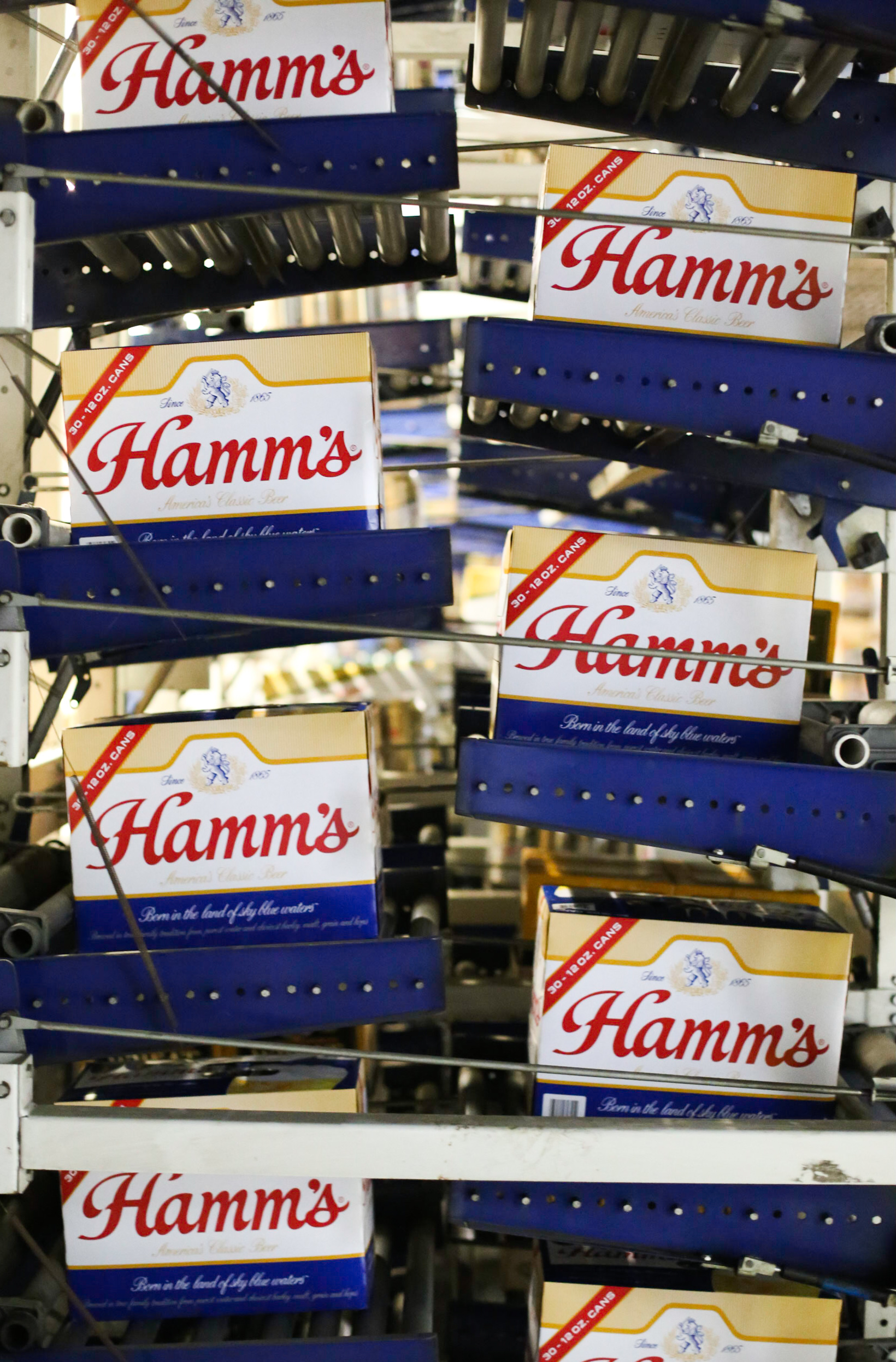LEGISLATIVE DISTRICT LOCATION
House #10 Senate #5 Congressional #7
LEGISLATIVE DISTRICTS SERVICED
House #2, 3, 4,5,6, 8, 9, 10, 11, 12, 13, 14, 16, 25, 26 ,27, 28, 29, 31, 32, 33, 34, 35, 39, 40, 78
Senate #1, 2, 3, 4, 5, 6, 7, 8, 13, 14, 15, 16, 17, 18, 20, 39
Congressional #1, 3, 4, 5, 7, 9
A COMMITMENT TO IMPROVEMENT
When Reye Beverage purchased what would become Chicago Beverage Systems in 1979, the company was delivering under a million cases a year with only three brands: Miller Lite, Miller High Life and Löwenbräu. “At that point,” estimates President Jim Doney, “total company market share was probably about 5% or 6%... and now we’re over 60 share.”
Today, the company operates from a 298,000 square foot, state-of-the- art facility on the city’s West Side, and represents the largest portfolio of imported, craft beer and domestic brands in Chicago. They deliver close to 8 million cases of beer each year to more than 2,200 retailers across the city. When asked what contributed to that massive growth, Jim says, “Over the year’s we’ve kept plugging away. We knew long term that Miller or Anheuser-Busch would be the overall major players in Chicago, so that drove us everyday when we were out getting our butts kicked. Sure enough, that’s come true.”
“Another key factor” he continues, “was that the Reyes’ were relentless in pushing us to be the best and most competitive team that we could be... and as we started accumulating more brands, gained more strength, and grew more efficient in how we ran the business, we became a much stronger distributor.”
SUCCEED AS ONE: A MISSION STATEMENT AND A MANTRA
Chicago Beverage Systems' mission statement, “Succeed As One” is really more of a mantra. It starts every meeting, every presentation, every call. It’s emblazoned on polos, it’s on powerpoint decks, and was mentioned by nearly every employee we talked to.
A key pillar to that success is a passionate, engaged, and well-informed team — and they’ve spent a lot of time and resources solidifying that fact. They have truly put their money where there mouths are. Chris Ashby, SVP of Sales explains, “Most of our employees are in a training class of some kind on a weekly basis, whether it’s through a Chicago Beverage course, a Reyes Holdings course or a supplier course. We like to consider ourselves best in class in the area of employee development and that’s really important to us.”
An early adopter of the importance of the Cicerone Certification Program, Chicago Beverage has placed a premium on building a team of educated sales people by giving them the resources they need to earn that certification. “We’ll do a training class, for example, around German beers at an authentic German restaurant in Chicago, pairing the beers with German food and talking about the water characteristics that make it unique to that region, or the different hops, malts and yeast strains used in the beer.”
This certification is no laughing matter — it’s an incredibly difficult test that requires its takers to know the deepest ins and outs of the beer they’re selling. “I like to brag that because
our sales territory is so compact” says Jim Doney, “that we have more Level 2 Cicerone’s per square mile than any other distributor in the country. And no one’s been able to prove me wrong on that so far!”
FROM CHICAGO, FOR CHICAGO.
Chicago Beverage System’s Chicago sales territory is compact and highly concentrated. As a result, the company puts a premium on understanding the needs of their customers, and works with their supplier partners to design programming that works for the city. VP of Marketing, Jim Vogel explains, “Some of the things that might work at a Walmart in downstate Illinois, won’t fit in a small store in Chicago. We work with our suppliers to help them develop pieces that work here. We’re local experts and try and coach our suppliers on what’s going to work in our market.” They employ technologies and constant communication with their brand teams and suppliers to ensure the needs of the suppliers are being met, and balanced with the needs of the customers.
THE FUTURE OF THE BEER INDUSTRY
Chicago Beverage System’s focus on improvement means that they’re constantly looking to the future. They’re doing today what they know will help them win tomorrow. We asked team members what they saw as the future of the beer industry, and here’s what they said:
BLAKE YANICS
“I’d say first and foremost, we want to maintain a strong three tier system in the state of Illinois. We’ve got to continue to work closely with brewers of all sizes to keep that system strong.”
Mary Lou Polycyn
“A comittment to being green is going to continue to be a big part of our industry, whether it’s with biodiesel fuel, the way we run our equipment, our suppliers, or our buildings and materials.”
Mike Skully
“Shelf space isn’t getting any bigger, but breweries continue to open up daily. At the end of the day local beer will continue to be big, but quality beer will become more important. In the next 5-10 years the variety will continue but if a brewery isn’t making good product, it’s not going to survive.”
Chris Ashby
“I think innovation is going to continue to be critical in the brewing industry — that we have products in the years to come that are able to capture the minds and wallets of millennial consumers and can get people to look at beer as they’re first choice in beverage.”








